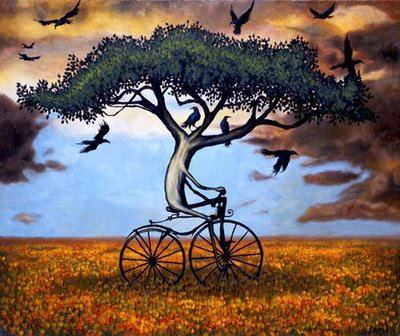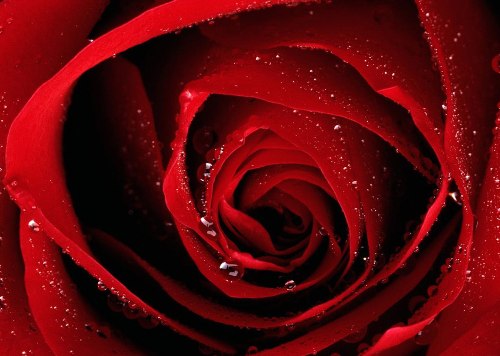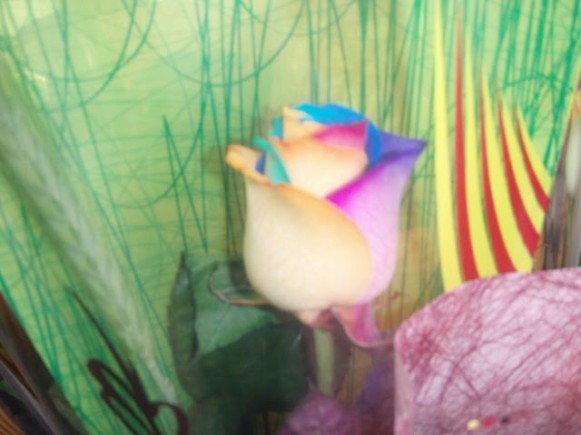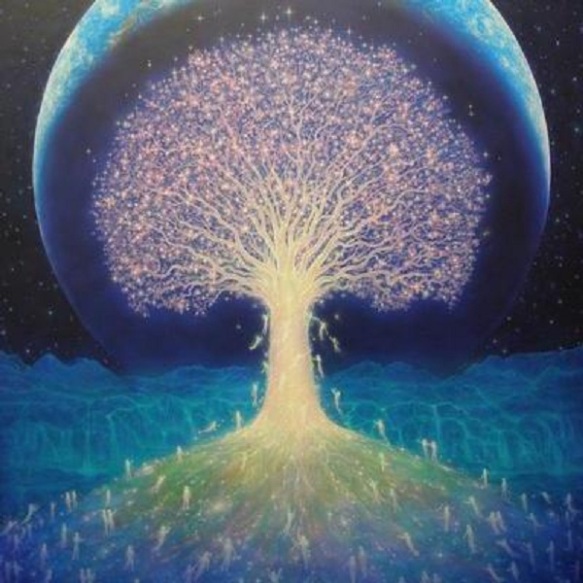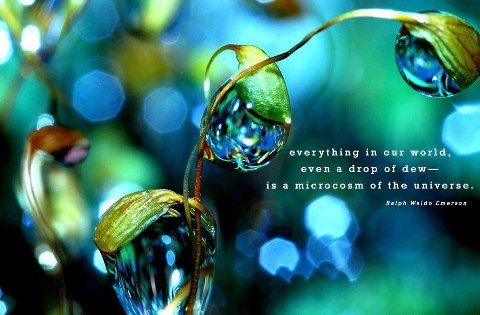“Most Men They Don’t Need It. White Man He Kills for It.” Primitive Philosophy, Part Two: Away from Manifest Destiny, The Primal Renaissance
Manifest Destiny
Glorifying himself with the regalia of “Reason,” Western Man ascended the throne in the castle of Nature and deigned to cast his eyes below him on all the rest of living things, nay, on the rest of all of Creation.
From such imperial heights Western man deduced the workings of the Universe — utilizing his purportedly powerful tool of Reason — and conceived how he should apportion and determine all that he surveyed. For surely his perception and apprehension of a thing was akin to possession . . . he reasoned conveniently.

 Thus adorned and fortified, Rational Man went about subduing all that came before his view. Letting nothing as trivial as philosophies, traditions, cultures, and the peoples who embodied them stand in his way.
Thus adorned and fortified, Rational Man went about subduing all that came before his view. Letting nothing as trivial as philosophies, traditions, cultures, and the peoples who embodied them stand in his way.
Nor even, in this century, has “Rational” Man allowed the complete elimination, for all of eternity, of millions of species of living things, evolving out of the mists of billions of years, obstruct him in the least from the attainment of desires, regardless how trivial. Thus he “succeeded” to such an extent that he threatens now even his own existence.
“Why Did He Do It? White Man.”
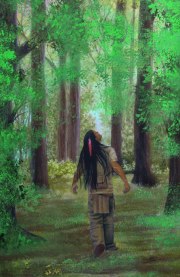
 It is only now that his own demise is at hand that Rational Man stops to reflect, to look back upon what he’s wrought, to re-evaluate his goals, his trajectory, his path.
It is only now that his own demise is at hand that Rational Man stops to reflect, to look back upon what he’s wrought, to re-evaluate his goals, his trajectory, his path.
In so doing he discovers his scapegoating tendencies. He stands horrified at his reddened hands, bloodied by his extermination of entire cultures, entire races, entire species of life. “Why did he do it? White man.” asks the rock group Steeleye Span in their song, “White Man”:
Some sing of their glory,
You tell the true story,
Most men they don’t need it,
White man he kills for it.They took to the seas,
Searching for a land
That they could call paradise,
Stealing the breeze that carried them toward the sun.With lust in their eyes,
They found a land,
And said “We found paradise,
Think of the Lord, and look at the prize we’ve won.”We know who they were,
They were the ones who killed their brothers to steal from others.
We know who they were,
They were the ones whose sons and daughters are doing it still. . . .And in their hearts,
What did they feel?
Did they think they had the right to steal
Another man’s land
Who had no name
Oh, they didn’t think he’d feel the pain.So they sailed away from their own country
To another man’s land far across the sea.
And they stole that land from the people there, And they called that land Australia.Why did he do it, white man. . . .
They sailed away, one winter’s day,
To a sunlit land that was far away,
And they stole that land from the people there,
And they called that land America.Why did he do it, white man. . . .
And in their hearts,
What did they feel?
Did they think they had the right to steal
Another man’s land
Who had no name.
Oh, they didn’t think he’d feel the pain. . . .(from “Portfolio,” Steeleye Span, 1988)
This Radical Reversal, This Primal Return

 In the wake of this new realization a new humility is necessarily born. Both of these are nurtured further by the Westerner’s own sciences — which have overturned his cherished premises, requiring visions of the truth quite at odds with what was used to get him to this pass, and, coincidentally enough, quite akin to that which had been thrown away, beat back, persecuted, and even killed in its embodiment earlier.
In the wake of this new realization a new humility is necessarily born. Both of these are nurtured further by the Westerner’s own sciences — which have overturned his cherished premises, requiring visions of the truth quite at odds with what was used to get him to this pass, and, coincidentally enough, quite akin to that which had been thrown away, beat back, persecuted, and even killed in its embodiment earlier.
 This radical reversal, this mushroom-like returning to our roots, reappraisal of our origins and foundations, may be the thing momentous enough and radical enough to save us, to abort our countdown to extermination. For surely a “Boy Scout” or “Civic League” approach to tackling the problems that beset us is perhaps worse than nothing in its deluding us into thinking we are accomplishing something, when it is major efforts and radical changes that are required.
This radical reversal, this mushroom-like returning to our roots, reappraisal of our origins and foundations, may be the thing momentous enough and radical enough to save us, to abort our countdown to extermination. For surely a “Boy Scout” or “Civic League” approach to tackling the problems that beset us is perhaps worse than nothing in its deluding us into thinking we are accomplishing something, when it is major efforts and radical changes that are required.
Yet, as difficult as this reversal will be in the lifestyle changes, the efforts required in the domain of attitudes and conditioning — 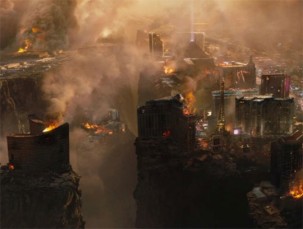 in terms of assailing the millenniums-strong fortifications of culturally conditioned ego — may verge on the near-miraculous. People do not change easily, if at all.
in terms of assailing the millenniums-strong fortifications of culturally conditioned ego — may verge on the near-miraculous. People do not change easily, if at all.
Still, we are aided, only fortuitously, by some of our own devices. We are goaded also by the specters of our own dissolution and by their lieutenants of epidemic disease who, sent ahead, are even now making their way among us — our sentinels too often sleeping, too infrequently and much too feebly signaling the alarm.
infrequently and much too feebly signaling the alarm.
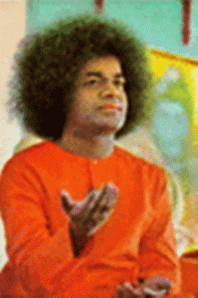 There is evidence that we are aided also by unacknowledged powers — seen and heralded only by the relatively few. All things considered, by the grace of God … and perhaps that solely … we might make it.
There is evidence that we are aided also by unacknowledged powers — seen and heralded only by the relatively few. All things considered, by the grace of God … and perhaps that solely … we might make it.
This Vision of a Primal Renaissance
 Still, we must apply ourselves. We must make the effort to see clearly, to see fairly, to break through our cultural conditioning, to reach out to all those living/nonliving, to all that is threatened by our misproliferation of deeds.
Still, we must apply ourselves. We must make the effort to see clearly, to see fairly, to break through our cultural conditioning, to reach out to all those living/nonliving, to all that is threatened by our misproliferation of deeds.
So it is that this book seeks to be part of that great reversal, that primal return, indeed, that primal renaissance. In so doing it will unavoidably overturn many of our comfortable illusions. But it will attempt to do so on the basis of the evidence, and it will attempt to leave the Mystery where it properly belongs.
 Still, considering this intention to lay to waste or to reverse so much that is part of Western conditioning, so much that is unquestioned as universally true, and common-sensically indisputable, for many people this may be a painful book to read. I have no solace for that, save that of the vision of the harmonious age, the primal renaissance emerging from all this current pain and confusion. That is a vision whose soothing silhouette will hopefully appear increasingly closer as we proceed — summoned by our yearning, self-inquiry, and effort — to hold our hand and guide us, even as we simultaneously observe our familiar cultural edifices crumbling about us.
Still, considering this intention to lay to waste or to reverse so much that is part of Western conditioning, so much that is unquestioned as universally true, and common-sensically indisputable, for many people this may be a painful book to read. I have no solace for that, save that of the vision of the harmonious age, the primal renaissance emerging from all this current pain and confusion. That is a vision whose soothing silhouette will hopefully appear increasingly closer as we proceed — summoned by our yearning, self-inquiry, and effort — to hold our hand and guide us, even as we simultaneously observe our familiar cultural edifices crumbling about us.

 But let us begin where it is necessary. Let us start by lowering our banner of being the pinnacle of cultural evolution. Getting a little humbler and peeking beneath the veil of pretentiousness, we may begin the journey downwards.
But let us begin where it is necessary. Let us start by lowering our banner of being the pinnacle of cultural evolution. Getting a little humbler and peeking beneath the veil of pretentiousness, we may begin the journey downwards.
Continue with The First Retreat from the Natural Self Was Matriarchal Consciousness; It Should Hardly Be Our Goal: You Cannot “Balance” a Duality … You Can Only Transcend One.
Return to “Consciousness Is the Source of the Cosmos” … Physical Reality Is Metaphor: The Era of “Rational” Man Is Over, A Primal Return Has Begun
Chapter One References
Davies, Paul, and Gribbin, John. (1992). The Matter Myth: Dramatic Discoveries That Challenge Our Understanding of Physical Reality. New York: Simon & Schuster.
Eddington, Arthur Stanley. (1928). The Nature of the Physical World. London.
Ferris, Timothy. (1992). The Mind’s Sky: Human Intelligence in a Cosmic Context. New York: Bantam Books.
Kuhn, Thomas S. (1970). The Structure of Scientific Revolutions. Chicago: University of Chicago Press.
Labbe, Armand. (1991). “Consciousness versus awareness in the light of classical Eastern perspectives on the nature of transcendence.” Paper delivered at the 1991 Annual Conference of the Society for the Anthropology of Consciousness, March 21, 1991.
Nerlich, G. C. (1967). Arthur Stanley Eddington (1882-1944). In Encyclopedia of Philosophy, 458-460.
Sheldrake, Rupert. (1991). The Rebirth of Nature: The Greening of Science and God. New York: Bantam.
Steeleye Span. (1988). White man. From the recording, Portfolio. Newton, NJ: Shanachie Records. Audio recording.
Continue with The First Retreat from the Natural Self Was Matriarchal Consciousness; It Should Hardly Be Our Goal: You Cannot “Balance” a Duality … You Can Only Transcend One.
Return to “Consciousness Is the Source of the Cosmos” … Physical Reality Is Metaphor: The Era of “Rational” Man Is Over, A Primal Return Has Begun
Invite you to join me on Twitter:
http://twitter.com/sillymickel
friend me on Facebook: https://www.facebook.com/sillymickel
“Most Men They Don’t Need It. White Man He Kills for It.” Primitive Philosophy, Part Two: Away from Manifest Destiny, The Primal Renaissance
Manifest Destiny
Glorifying himself with the regalia of “Reason,” Western Man ascended the throne in the castle of Nature and deigned to cast his eyes below him on all the rest of living things, nay, on the rest of all of Creation.
From such imperial heights Western man deduced the workings of the Universe — utilizing his purportedly powerful tool of Reason — and conceived how he should apportion and determine all that he surveyed. For surely his perception and apprehension of a thing was akin to possession . . . he reasoned conveniently.

 Thus adorned and fortified, Rational Man went about subduing all that came before his view. Letting nothing as trivial as philosophies, traditions, cultures, and the peoples who embodied them stand in his way.
Thus adorned and fortified, Rational Man went about subduing all that came before his view. Letting nothing as trivial as philosophies, traditions, cultures, and the peoples who embodied them stand in his way.
Nor even, in this century, has “Rational” Man allowed the complete elimination, for all of eternity, of millions of species of living things, evolving out of the mists of billions of years, obstruct him in the least from the attainment of desires, regardless how trivial. Thus he “succeeded” to such an extent that he threatens now even his own existence.
“Why Did He Do It? White Man.”

 It is only now that his own demise is at hand that Rational Man stops to reflect, to look back upon what he’s wrought, to re-evaluate his goals, his trajectory, his path.
It is only now that his own demise is at hand that Rational Man stops to reflect, to look back upon what he’s wrought, to re-evaluate his goals, his trajectory, his path.
In so doing he discovers his scapegoating tendencies. He stands horrified at his reddened hands, bloodied by his extermination of entire cultures, entire races, entire species of life. “Why did he do it? White man.” asks the rock group Steeleye Span in their song, “White Man”:
Some sing of their glory,
You tell the true story,
Most men they don’t need it,
White man he kills for it.They took to the seas,
Searching for a land
That they could call paradise,
Stealing the breeze that carried them toward the sun.With lust in their eyes,
They found a land,
And said “We found paradise,
Think of the Lord, and look at the prize we’ve won.”We know who they were,
They were the ones who killed their brothers to steal from others.
We know who they were,
They were the ones whose sons and daughters are doing it still. . . .And in their hearts,
What did they feel?
Did they think they had the right to steal
Another man’s land
Who had no name
Oh, they didn’t think he’d feel the pain.So they sailed away from their own country
To another man’s land far across the sea.
And they stole that land from the people there, And they called that land Australia.Why did he do it, white man. . . .
They sailed away, one winter’s day,
To a sunlit land that was far away,
And they stole that land from the people there,
And they called that land America.Why did he do it, white man. . . .
And in their hearts,
What did they feel?
Did they think they had the right to steal
Another man’s land
Who had no name.
Oh, they didn’t think he’d feel the pain. . . .(from “Portfolio,” Steeleye Span, 1988)
This Radical Reversal, This Primal Return

 In the wake of this new realization a new humility is necessarily born. Both of these are nurtured further by the Westerner’s own sciences — which have overturned his cherished premises, requiring visions of the truth quite at odds with what was used to get him to this pass, and, coincidentally enough, quite akin to that which had been thrown away, beat back, persecuted, and even killed in its embodiment earlier.
In the wake of this new realization a new humility is necessarily born. Both of these are nurtured further by the Westerner’s own sciences — which have overturned his cherished premises, requiring visions of the truth quite at odds with what was used to get him to this pass, and, coincidentally enough, quite akin to that which had been thrown away, beat back, persecuted, and even killed in its embodiment earlier.
 This radical reversal, this mushroom-like returning to our roots, reappraisal of our origins and foundations, may be the thing momentous enough and radical enough to save us, to abort our countdown to extermination. For surely a “Boy Scout” or “Civic League” approach to tackling the problems that beset us is perhaps worse than nothing in its deluding us into thinking we are accomplishing something, when it is major efforts and radical changes that are required.
This radical reversal, this mushroom-like returning to our roots, reappraisal of our origins and foundations, may be the thing momentous enough and radical enough to save us, to abort our countdown to extermination. For surely a “Boy Scout” or “Civic League” approach to tackling the problems that beset us is perhaps worse than nothing in its deluding us into thinking we are accomplishing something, when it is major efforts and radical changes that are required.
Yet, as difficult as this reversal will be in the lifestyle changes, the efforts required in the domain of attitudes and conditioning —  in terms of assailing the millenniums-strong fortifications of culturally conditioned ego — may verge on the near-miraculous. People do not change easily, if at all.
in terms of assailing the millenniums-strong fortifications of culturally conditioned ego — may verge on the near-miraculous. People do not change easily, if at all.
Still, we are aided, only fortuitously, by some of our own devices. We are goaded also by the specters of our own dissolution and by their lieutenants of epidemic disease who, sent ahead, are even now making their way among us — our sentinels too often sleeping, too infrequently and much too feebly signaling the alarm.
infrequently and much too feebly signaling the alarm.
 There is evidence that we are aided also by unacknowledged powers — seen and heralded only by the relatively few. All things considered, by the grace of God … and perhaps that solely … we might make it.
There is evidence that we are aided also by unacknowledged powers — seen and heralded only by the relatively few. All things considered, by the grace of God … and perhaps that solely … we might make it.
This Vision of a Primal Renaissance
 Still, we must apply ourselves. We must make the effort to see clearly, to see fairly, to break through our cultural conditioning, to reach out to all those living/nonliving, to all that is threatened by our misproliferation of deeds.
Still, we must apply ourselves. We must make the effort to see clearly, to see fairly, to break through our cultural conditioning, to reach out to all those living/nonliving, to all that is threatened by our misproliferation of deeds.
So it is that this book seeks to be part of that great reversal, that primal return, indeed, that primal renaissance. In so doing it will unavoidably overturn many of our comfortable illusions. But it will attempt to do so on the basis of the evidence, and it will attempt to leave the Mystery where it properly belongs.
 Still, considering this intention to lay to waste or to reverse so much that is part of Western conditioning, so much that is unquestioned as universally true, and common-sensically indisputable, for many people this may be a painful book to read. I have no solace for that, save that of the vision of the harmonious age, the primal renaissance emerging from all this current pain and confusion. That is a vision whose soothing silhouette will hopefully appear increasingly closer as we proceed — summoned by our yearning, self-inquiry, and effort — to hold our hand and guide us, even as we simultaneously observe our familiar cultural edifices crumbling about us.
Still, considering this intention to lay to waste or to reverse so much that is part of Western conditioning, so much that is unquestioned as universally true, and common-sensically indisputable, for many people this may be a painful book to read. I have no solace for that, save that of the vision of the harmonious age, the primal renaissance emerging from all this current pain and confusion. That is a vision whose soothing silhouette will hopefully appear increasingly closer as we proceed — summoned by our yearning, self-inquiry, and effort — to hold our hand and guide us, even as we simultaneously observe our familiar cultural edifices crumbling about us.

 But let us begin where it is necessary. Let us start by lowering our banner of being the pinnacle of cultural evolution. Getting a little humbler and peeking beneath the veil of pretentiousness, we may begin the journey downwards.
But let us begin where it is necessary. Let us start by lowering our banner of being the pinnacle of cultural evolution. Getting a little humbler and peeking beneath the veil of pretentiousness, we may begin the journey downwards.
Continue with The First Retreat from the Natural Self Was Matriarchal Consciousness; It Should Hardly Be Our Goal: You Cannot “Balance” a Duality … You Can Only Transcend One.
Return to “Consciousness Is the Source of the Cosmos” … Physical Reality Is Metaphor: The Era of “Rational” Man Is Over, A Primal Return Has Begun
Chapter One References
Davies, Paul, and Gribbin, John. (1992). The Matter Myth: Dramatic Discoveries That Challenge Our Understanding of Physical Reality. New York: Simon & Schuster.
Eddington, Arthur Stanley. (1928). The Nature of the Physical World. London.
Ferris, Timothy. (1992). The Mind’s Sky: Human Intelligence in a Cosmic Context. New York: Bantam Books.
Kuhn, Thomas S. (1970). The Structure of Scientific Revolutions. Chicago: University of Chicago Press.
Labbe, Armand. (1991). “Consciousness versus awareness in the light of classical Eastern perspectives on the nature of transcendence.” Paper delivered at the 1991 Annual Conference of the Society for the Anthropology of Consciousness, March 21, 1991.
Nerlich, G. C. (1967). Arthur Stanley Eddington (1882-1944). In Encyclopedia of Philosophy, 458-460.
Sheldrake, Rupert. (1991). The Rebirth of Nature: The Greening of Science and God. New York: Bantam.
Steeleye Span. (1988). White man. From the recording, Portfolio. Newton, NJ: Shanachie Records. Audio recording.
Continue with The First Retreat from the Natural Self Was Matriarchal Consciousness; It Should Hardly Be Our Goal: You Cannot “Balance” a Duality … You Can Only Transcend One.
Return to “Consciousness Is the Source of the Cosmos” … Physical Reality Is Metaphor: The Era of “Rational” Man Is Over, A Primal Return Has Begun
Invite you to join me on Twitter:
http://twitter.com/sillymickel
friend me on Facebook: https://www.facebook.com/sillymickel


